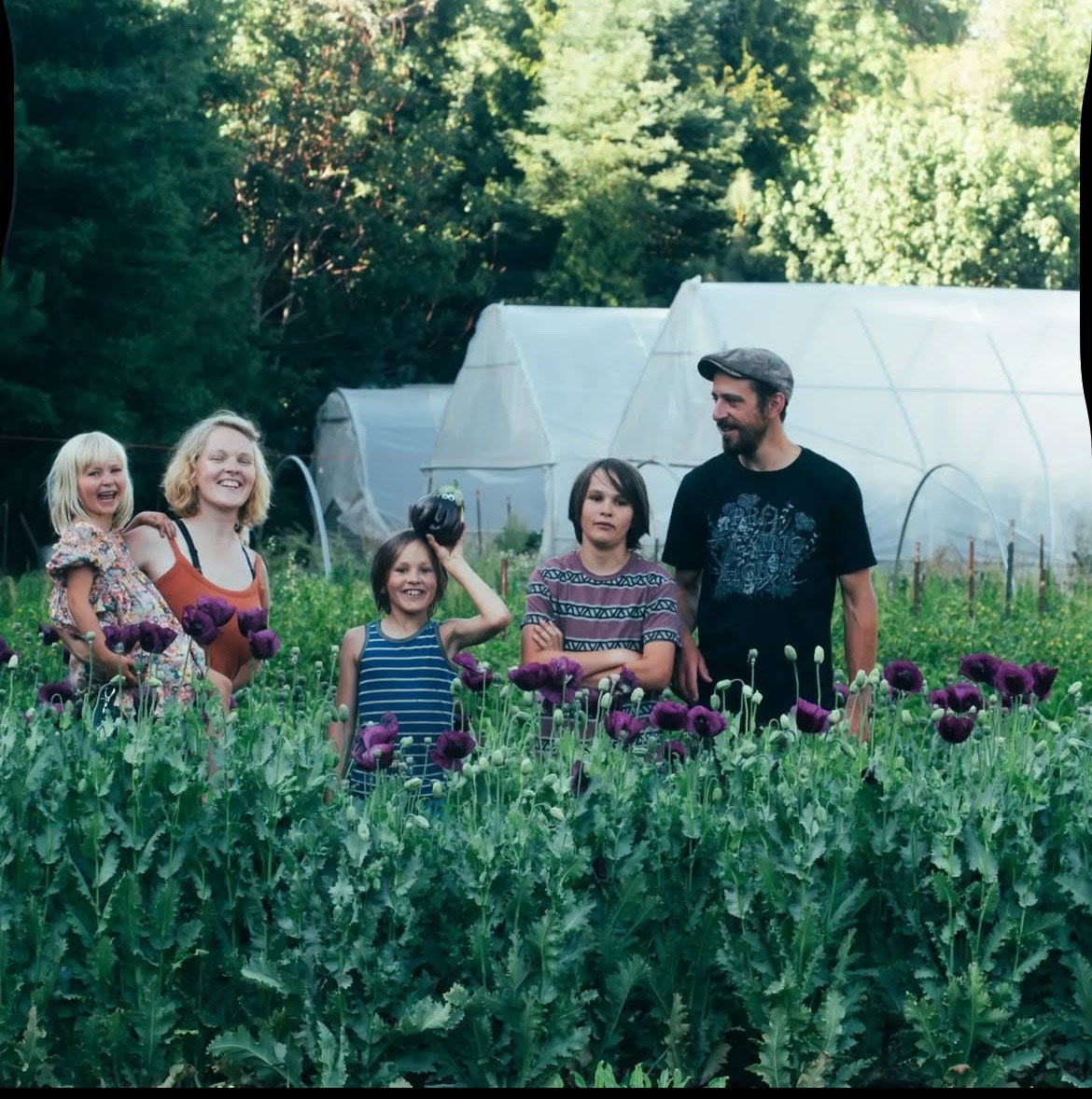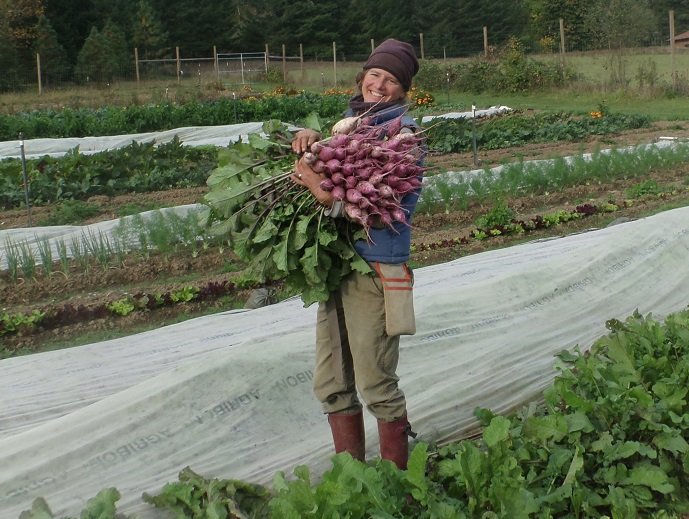WILD CHILD
2 APPRENTICESHIPS
FULL TIME (40 hours/week)
APPROX START/END DATES: April -December
$16/HR
LOCATION: Noti (Willamette Valley Chapter)
YEARS IN PRODUCTION: 5
PREVIOUS YEARS HOSTING: New Host Farm
PRACTICES: Certified Organic
ACRES IN CULTIVATION: 5
Fruits, Vegetables, Seed Production, Poultry, Culinary Herbs, Medicinal Herbs
ON-FARM HOUSING? Yes
VEHICLE REQUIRED? Yes
LANGUAGES SPOKEN: English
Women-Owned/Operated
Production on our farm is seed-to-seed and loyal to the soil at every turn.
With a dedication to regenerative farming practices we aim to build up the health and life of the soil under our feet.
https://www.soworganicseed.com/
https://www.facebook.com/soworganicseed
FARM OVERVIEW
We reside and farm on 16 acres of mixed fields and woods nestled into the foothills of Oregon's Coastal range. The farm is 15 minutes from Veneta and 40 from Eugene. We are a family of 5 on the farm: Alva(32) Osana(33)and our three kids. (Ages 6-13). There are two barns, several greenhouses and 5 acres of production land.
On certified organic land we raise fresh market crops of fruits and vegetables for sale at Farmers Markets and wholesale outlets. Being able to vend throughout the growing season gives the farm the income needed to follow our second, deepest passion, Seed Farming. For years we have been growing and breeding open-pollinated heirloom seeds on contract for well known seed companies and starting soon, we are launching our own packet line.
Many of our employees are heading off to start a farm enterprise of their own and we are heading into the year ahead with plans of cultivating relationships with some new farmers who are looking to walk their own farming path with firmer footing.
TRAINING AND EXPECTATIONS
The exposure an Apprentice will receive on our farm is aimed to be the most well-rounded farming experience we can offer. Producing a high diversity of crops on a small scale, each member of our team will be exposed to every aspect of the farm throughout the seasons.
From tasks like seeding, planting, cultivating, trellising, selecting, harvesting, to washing & packing, and the proper use and management of the equipment needed to accomplish all of these tasks.
Interns will additionally be trained in record keeping for both general farm management and Oregon Tilth Organic Certification requirements.
Marketing of our fresh produce crops is done primarily at the local farmers market, with in depth training on sales, presentation and marketing.
Working side by side with the Osana and Alva will allow good time for instruction, clarification, and reassurance. We are expecting interns to commit to approx. 40 hours/week per week plus the RFC training sessions. Participating in the growing season in that manner will allow a participant to gain a well rounded experience and a better understanding of farming seed to seed.
**This job requires lots of physically demanding manual labor and the ability to comfortably lift 40+ lbs. Sitting, Standing, Crouching for extended periods of time, exposure to sun, heat, rain and cold and all the weather in between.**
We will demonstrate and work alongside Apprentices and explain core concepts, ideas and skills. There will be time for questions and check-ins throughout the season.
Please note : There are no tobacco products or tobacco use permitted on the property.
QUALIFICATIONS
Please share our passion for agriculture, local food systems and commitment to your community, understand and value organic and sustainable farming practices, and have a genuine passion for working with the land, plants, animals, and natural processes.
Apprentices should be interested in learning new farming techniques, gaining knowledge about crop management, soil health, and farm operations and have the physical ability to perform tasks that require manual labor and work in varying weather conditions.
We ourselves take great pride in the following attributes and seek them from our farm crew and friends:
Dependable: Shows up on time and consistently completes tasks to the best of their ability.
Motivated: Takes initiative and is proactive in completing farm duties without needing constant supervision.
Collaborative: Works well with others and contributes to a positive, productive team environment.
Respectful: Treats colleagues, customers, and farm plants and animals with respect, maintaining a harmonious atmosphere on the farm.
Flexible: Adaptable to different roles and tasks, understanding that farm work can vary based on the season or the needs of the crop at hand.
Previous farming experience is noted and appreciated, but never required.
COMPENSATION / ACCOMMODATIONS
The wage for the season is $16/hr with the potential for raises throughout the year.
As on many food production farms, we regularly get to feast on the freshest and highest quality produce around. We offer apprentices and employees access to as much fresh produce as you can eat throughout the growing seasons.
There is an end of the season bonus for Apprentices who complete the agreed upon season.
EQUITY AND INCLUSION
At Wild Child Farm we are committed to honoring diversity and promoting equity in every aspect of what we do. We actively seek to create an inclusive environment where individuals from all backgrounds are valued, supported, and empowered. By embracing diverse perspectives and experiences, we aim to foster a farm crew that reflects the richness of our community and ensures equal opportunities for all.
Alva, Osana, and family.








